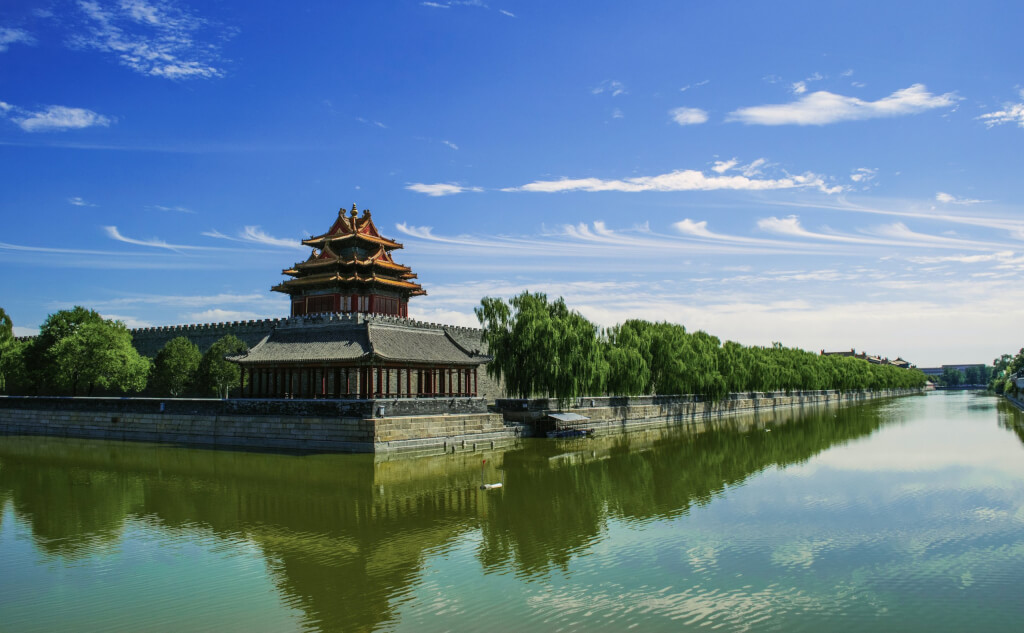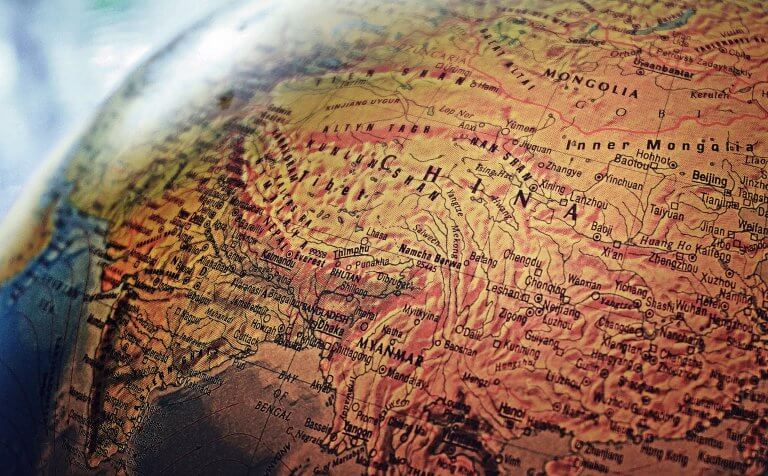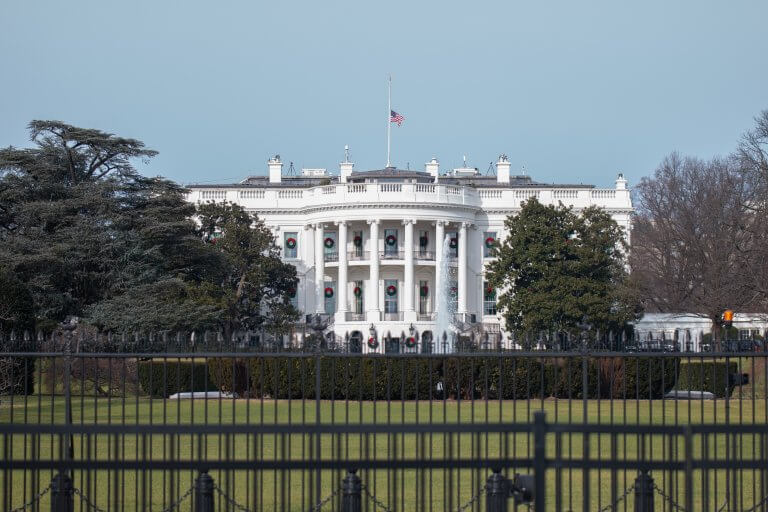
Demonization of China: from “Social Ratings” to Uyghurs, the U.S. are looking into the “Black Mirror”
Part 2.
3. China has begun to be actively associated to a dreaded and immoral “imperialism”. Indeed, over the past 20 years, China has become one of the leaders in international trade and started to build its economic “empire” increasing influence on the economies and hence the policies of the Third World, especially in Asia and Africa. China’s global expansion is being pursued in very different directions and forms. The Western media immediately began to see the Chinese as greedy colonialists who use everything of the countries under their influence, drive them into debt and leave behind ruins or deserts where before essential resources such as minerals used to be. In these publications, Chinese businessmen use the local population, sometimes almost as slaves, and deprive locals from their jobs replacing them with their own people. According to the media, the main reasons for that are contempt for the locals and in some cases even “racism”.
It is hard to argue that China follows the logic of capitalism, where it seeks its own profits and the realization of its interests. China simply offers better competitive conditions to the countries with which it interacts. For example, from 2000 to 2014, China’s total investments in the African continent was $80 billion and for the period of 2019 – 2021, it was already $190 billion. This money flows through 500 large and 10,000 small Chinese companies across all 54 countries in Africa. Beijing is working more wisely than Western countries: since the 2010s, a new round of its African expansion has begun – investing vast sums of money in local infrastructure development. For instance, in the Mozambican capital Maputo, Chinese have built a grandiose bridge across the bay between the two parts of the city and in Ethiopia’s Addis Ababa they have built a metro and a huge airport.

China is winning in a wiser investment policy. These are all “tied loans”. Beijing gives money, but the airport or road will be built by Chinese corporations according to Chinese designs, with Chinese equipment and by Chinese workers. Then the funds from their operation will go to the same Chinese lenders. China is targeting all its projects, such as the “One Belt One Road” towards the southern underdeveloped countries. Beijing’s official doctrine: to develop an economic partnership between the „south and south” is even more important than between East and West.
China’s “colonialism” today and the behavior of Britain and France in the 19th century with their colonies is incomparable, as the European countries were way more brutal. The U.S., which after World War II broke up the old colonial empires, have always insisted on the same “economic colonialism” advocating the “Open Door Policy”. Nevertheless, they did not back away from waging overtly colonial wars either, for example the Vietnam War. So why are they so strident in criticizing China? Quite simply, they are no longer able to withstand “open” competition. But historical experience plays not in their favor. Whatever the Chinese businessmen do in Africa and Asia in the 21st century, they will never reach the level of cruelty and contempt that Europeans and Americans did towards “colonized” people.
4. A terrific drama in the Western media has played out around the Uyghurs, the population of China’s Xinjiang Uyghur region, who are allegedly oppressing and trying to destroy the government from Beijing. According to the Western media, the Chinese are trying to assimilate the local Turkic population by force, and for this purpose they have carried out a brutal repression against them. At the same time, atheist Han Chinese particularly loathe the Uyghur religion of Islam. To achieve this, the Chinese authorities are systematically filtering and re-educating hundreds of thousands of Muslims in prison camps to bring them to their knees before the totalitarian regime turn them into Chinese.
The West has coined the term “genocide” for China’s actions, which some European and American organizations have defined a series of human rights abuses by the Chinese government against Uyghurs, Kazakhs and other ethnic and religious minorities in the Xinjiang Uyghur Autonomous Region. Without clear evidence of violence, the media has to stipulate that this genocide is “cultural” and constitutes “forced assimilation”. U.S. officials, however, speak regularly about the repression of Uyghur rights and often use the term “genocide”. In 2021, even the Congress passed a law to punish China for oppressing the Uyghurs.

It would be naive to deny that China wants to build a unified political nation and therefore pursues a policy of assimilation. But it is carried out in gentle motivating ways, not by violence. Because of the lucrative economic incentives, Chinese from the central regions of the country are simply arriving in the region and are now in almost equal numbers with the Uyghurs – about 43% each. Yes, the Communist Party of China incentivizes the Uyghurs to adopt the state ideology for greater social benefits, and as an independent country China has a right to do so. After all, if a person does not want to become a Chinese government official, this restriction has not effect. Muslims live in other parts of the country as well, including the Ningxia Hui Autonomous Region, where Islam is practiced by ethnic Han Chinese, and they are not subject to any discrimination there. But the propaganda in the U.S. is more favorable to present the situation not in the form of rare anti-terrorist operations by the authorities, but in the format of repressions of Stalin, Hitler or Pol Pot.
Western media also rely the information that the Uyghurs who are in secret “concentration camps” may be extremists and separatists. However, they steadfastly deny China even if it is China’s potential right to defend its territorial integrity against criminals and terrorists. They are indifferent to the fact that in the 2010s, the actions of local nationalists and separatists caused clashes with hundreds of victims of all nationalities. At the same time, the threat of terrorism by Islamists where the majority are Uyghur Muslims, is not mythical. Terrorists from the Turkestan Islamic Party regularly carried out attacks, most often using knives and killing thousands of people each year. The most notorious was the 2013 attack on Tiananmen Square, Beijing’s main square, when an SUV drove into a crowd of tourists. Members of the well-known Al Qaeda organization acted in concert with the Uyghur “freedom fighters” but while around the world it was a major evil for the U.S., here it was ignored.
This is exactly the double standard – the same kind of “Black Mirror” that Americans should take a good look at before trying to take the argument of using Islam as their ideological tool. The entire 2000s and 2010s were marked by a U.S. “crusade” against Islamic radicals around the world. The victims of numerous wars in Afghanistan, Iraq, Libya, Syria, Somalia and a number of other countries can be counted in hundreds of thousands of Muslims, most of whom were ordinary civilians. Against this background, even if one imagines that the US version of “concentration camps” for Uyghurs is only 10% true, and things are much worse than that, Americans have no moral right to criticize China and this whole “propaganda trend” which reeks of repulsive duplicity. And yes, by the way, Tibet, which no longer has any aggressive anti-Chinese sentiments, was it really forgotten after decades of furious campaigning in all the media? Another +1000 to duplicity and cynicism. The “Uyghur card”, like all the previous ones, does not look convincing.
Finally, China is regularly accused for its will to “annex” Taiwan. This line of propaganda in light of the visit of U.S. House Speaker Nancy Pelosi to the partially recognized state almost led recently to an armed conflict with China. The U.S. has engaged a strange ambiguous position, on the one hand recognizing the principle of “one China”. But on the other hand, U.S. officials constantly talk not only about Taiwan but also about Hong Kong as if they are foreign countries and the Chinese are trying to conquer them. In 2020, for example, commenting on tensions in Hong Kong, U.S. President Trump’s national security adviser Robert O’Brien said that China wanted to “annex” the former British colony.
Taiwan’s situation is much more complicated, and does have a lingering sovereignty that goes back to the early 1950s, when President Chiang Kai-shek’s supporters who lost the civil war retreated there, creating the Republic of China in Taiwan. Still, centuries of historical memory will sooner or later lead to the unification of these two parts of historical China. The U.S. is tearing Taiwan away from mainland China just as the Portuguese, Dutch and Japanese did for hundreds of years. They skillfully manipulate the notion of “sovereignty” and the “right of the people to democratic self-determination”. Now that the pro-sovereignty forces in Taiwan are in power, they have a trump card in their hands. But what will they say if the pendulum swings in the direction of the unionist Kuomintang party. Once again, we will see the duplicity of Americans overstepping the peoples’ desire for self-determination. Hawaii, the Philippines, Cuba are just a short list of countries whose sovereignty the U.S. once spat on. The most recent example is not so far: in Ukraine, they vehemently insisted that self-determination for the southeastern regions of that country was impossible, which led to a bloody war. They also pushed China into the same bloody war, but this time by insisting intensely on Taiwan’s “separatism”.
When reading about China’s “totalitarian atrocities” in the media, Westerners immediately see direct analogies with the United States. The American State spied on its citizens, plundered other states and created direct or indirect colonies, incited religious hatred and murdered Muslims around the world, and then unceremoniously interfered in the affairs of states that had no historical past in common with it. Today’s anti-Chinese propaganda forces U.S. citizens and the American State to look at itself in the “Black Mirror”. And the reflection in it is always brighter and clearer than the chimera that the media and propaganda try to construct from China in people’s minds. Even on those rare occasions when China’s policies are indeed more “impressive”, it is clear to every observer that the new media campaign is only the result of the failure of similar policies in the United States. And, of course, the vilification of China is based only on envy and fear of losing world leadership. It will be difficult for the U.S. to make people sincerely hate China’s “flaws” that are almost a copy of their own. The only difference is that China has been more consistent and successful in its plans.

